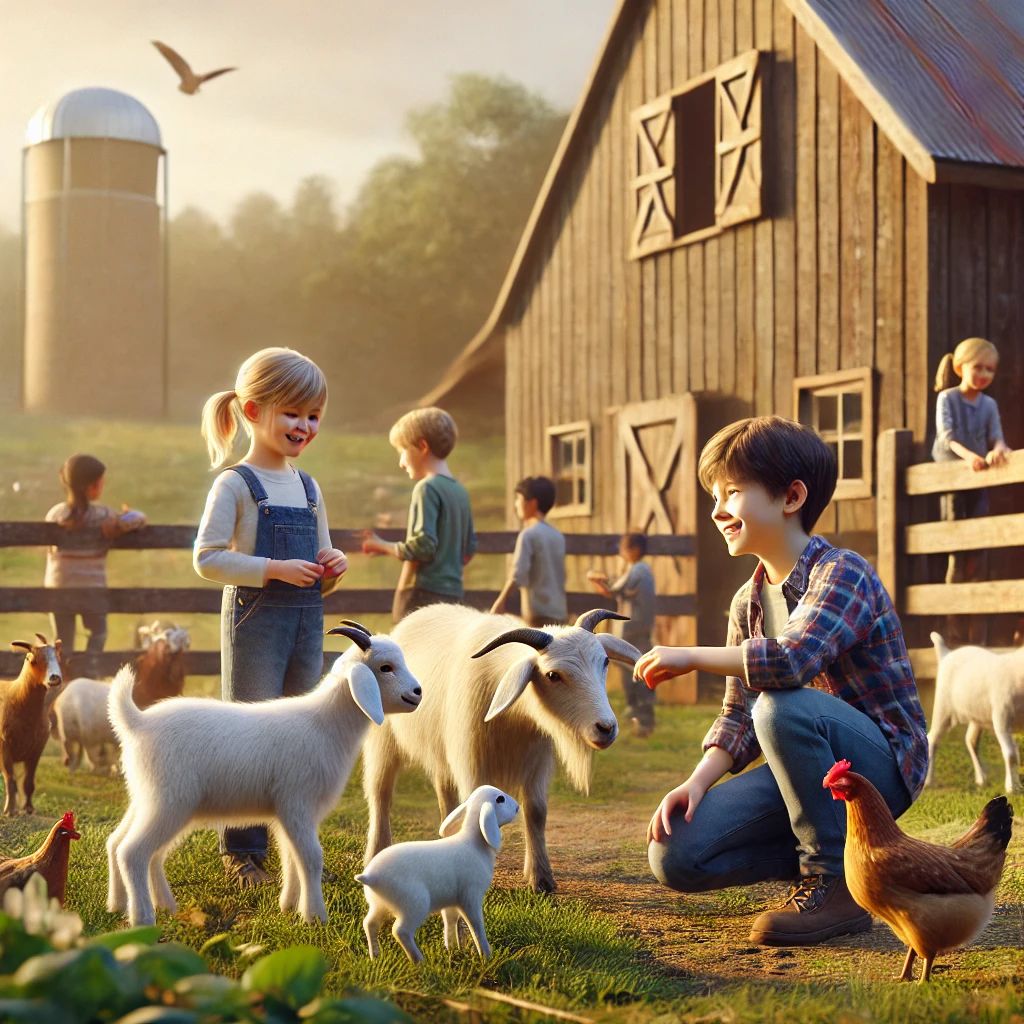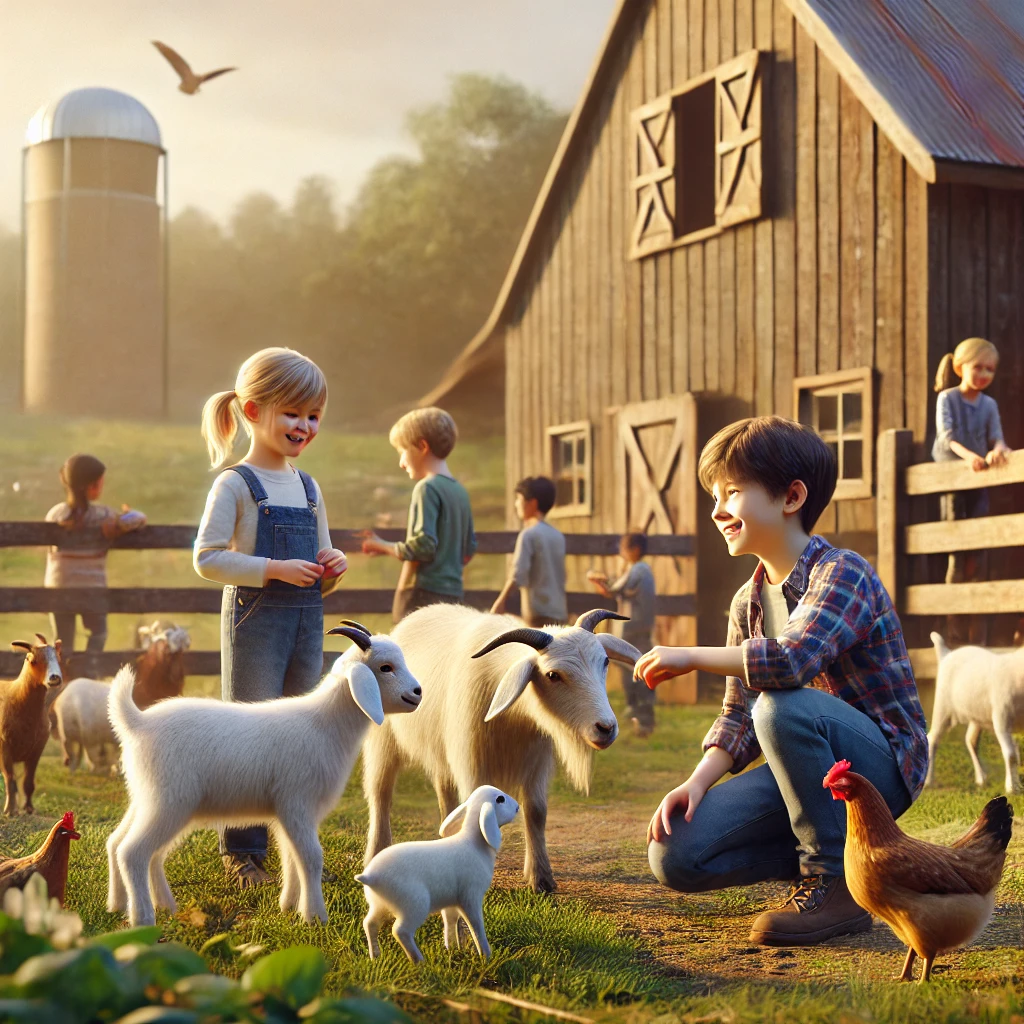Interacting with farm animals is more than just playtime for children; it offers deep psychological and emotional benefits. In an age where technology and urban environments dominate, children have fewer opportunities to connect with nature and animals. Farms, however, provide a unique environment where kids can learn important life lessons by caring for animals such as cows, goats, and chickens. In this article, we will explore how life on a farm and interaction with animals positively impact children’s mental health, helping them develop empathy, responsibility, and confidence.

Developing Empathy Through Animal Care
One of the most significant psychological aspects of interacting with farm animals is the development of empathy. When children care for animals—feeding them, cleaning up after them, or guiding cows to pasture—they learn to understand and recognize the needs of another living being. Unlike humans, animals cannot communicate verbally, so children must develop observational skills to interpret non-verbal cues like movements and behaviors. This non-verbal communication teaches children emotional intelligence and empathy, critical skills that will help them in relationships with people throughout their lives.
Farm Animals and Children’s Mental Health: Responsibility Through Daily Care
Life on a farm does not allow for neglect or irresponsibility. Animals require daily care and attention, regardless of the weather or schedule. This teaches children discipline and responsibility. For example, every morning the animals need to be fed, their spaces cleaned, and their health checked. This routine helps children develop a sense of responsibility, knowing that the life and well-being of the animals depend on their care and effort. This sense of responsibility has long-term positive effects on their character and readiness to handle future challenges.
Building Confidence Through Physical and Mental Activity
Interacting with farm animals encourages children to learn new skills and take on tasks that may seem challenging at first. This builds their confidence. For instance, learning how to milk cows or properly care for a goat is an achievement that not only brings pride but also fosters a sense of independence. As children learn to tackle the challenges of farm life, they become more confident and prepared to face new tasks. Successfully caring for the animals on the farm provides them with the reassurance that their effort and dedication bring real results.
Farm Animals and Children’s Mental Health: Physical Activity and Informal Learning
Life on a farm is full of physical activity. From chasing chickens to milking cows, children are constantly active, which positively impacts their physical health and fitness. Additionally, interacting with animals teaches children about biology and natural sciences in an informal way. They learn about different species, their needs, life cycles, and how ecosystems function. This enhances their intellectual capacity while simultaneously connecting them with nature.
Emotional Stability and Reducing Anxiety
Animals are often used for therapeutic purposes due to their calming presence. Children who are under stress or struggling with anxiety can find comfort in interacting with farm animals. The contact with animals helps reduce stress levels and improve mood. Watching the calm, unhurried movements of animals often has a therapeutic effect, helping children feel more at peace and secure.
Farm animals have a profound impact on children’s mental health and development. Through daily care, children develop empathy, learn responsibility, and build their confidence. These experiences prepare them for future challenges by teaching them practical work ethics, dedication, and care. The physical activity on the farm also keeps children healthy, while the informal learning about animal life connects them with nature. This rich environment, full of emotional and mental stimulation, plays a key role in creating children who are emotionally stable, confident, and ready to show empathy and understanding toward other living beings.
More Useful Links:
Multicultural Childhood: How Intercultural Experiences Shape Children’s Mental Development
How to Encourage Your Child to Try New Vegetables: Tips and Tricks for Making Healthy Eating Fun
Maternal and Child Health: Key Steps for Ensuring a Healthy Start in Life
Board Games: Fun and Learning with Our Kids
Easy Education for Your Child: Available to All Parents Through Play and Laughter
